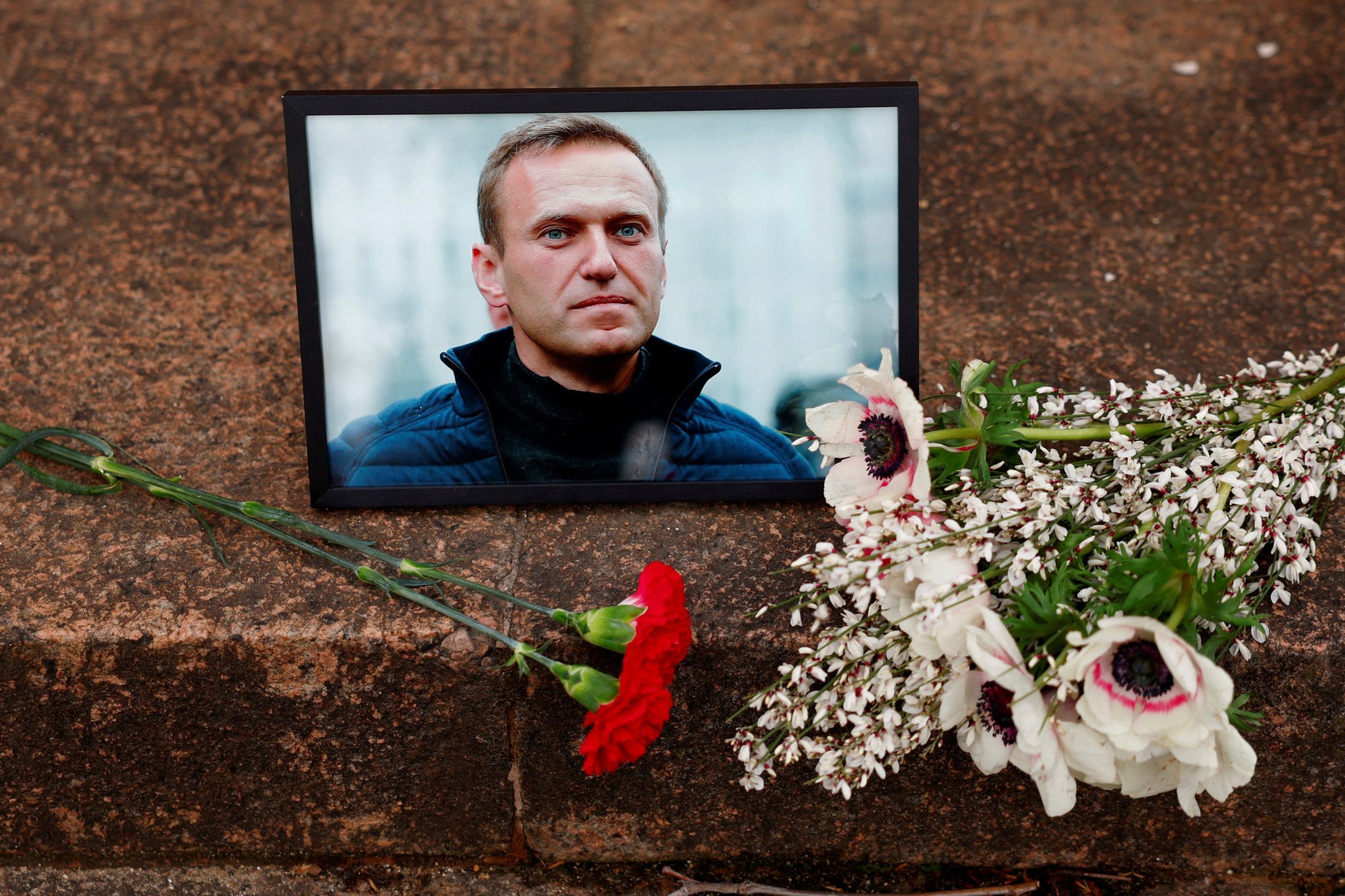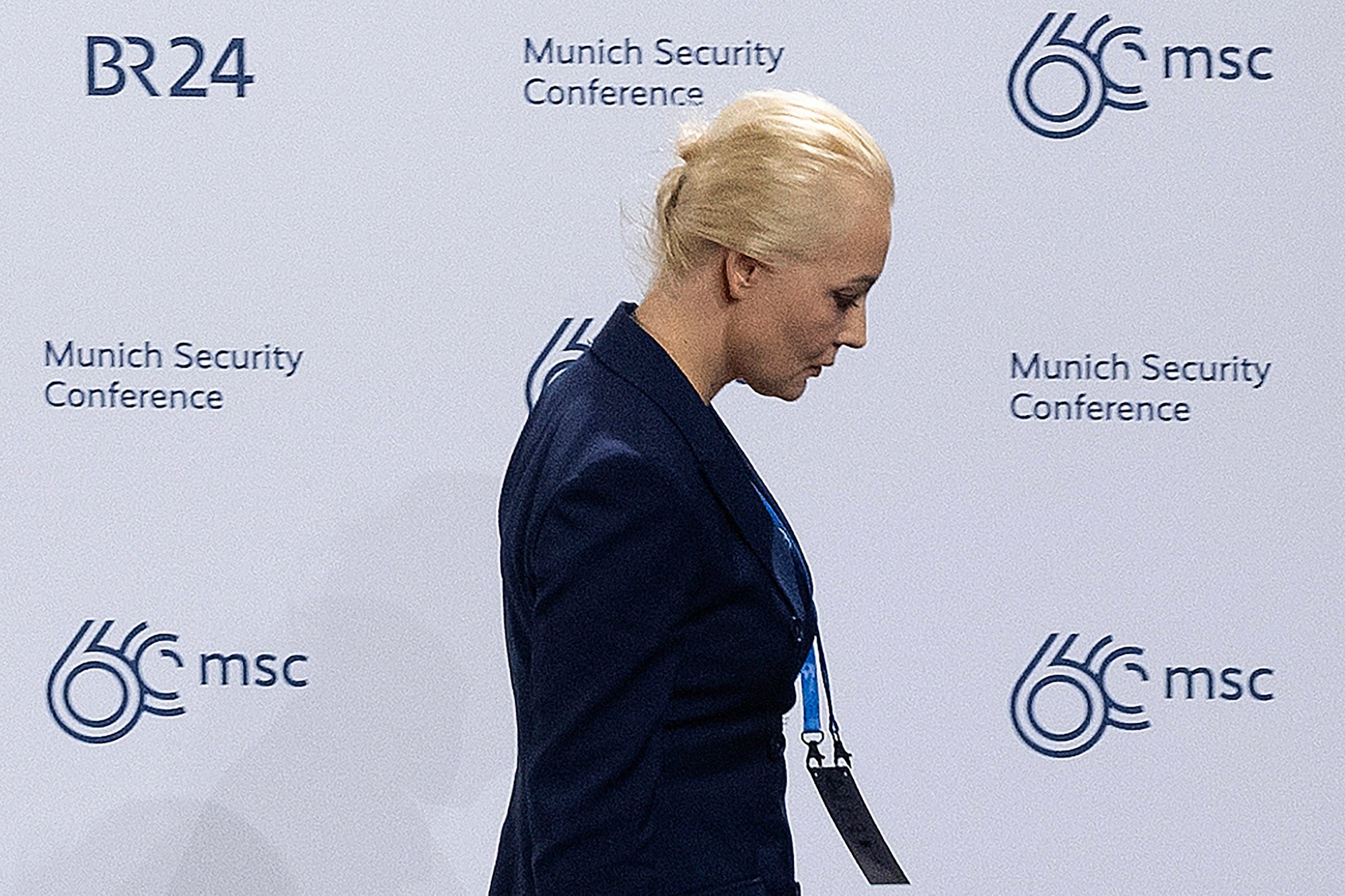Wang is scheduled to meet with EU chief diplomat Josep Borrell on Friday evening. He is also expected to meet with British Foreign Secretary David Cameron.
Neither the US nor the Chinese side immediately issued any statement about the meeting.
The flurry of diplomatic activity underpins the relative thaw in China's relations with the United States in recent months, following a high-level summit between Presidents Joe Biden and Xi Jinping in California in November.
Wang also held extensive talks with US National Security Advisor Jake Sullivan in Bangkok last month.
“Both countries are trying to manage the relationship more effectively than before, precisely because they want to avoid loss and loss,” Ian Bremmer, head of the Eurasia Advisory Group, said on the sidelines of the summit.
China supports an “equal and orderly multipolar world” at the Munich Security Forum
China supports an “equal and orderly multipolar world” at the Munich Security Forum
“This is even though there is no trust in the relationship, there is no harmony in the relationship, but there is a tremendous amount of interdependence. And I think that will continue, at least for a while.”
A year ago, Wang and Blinken met in the same place, but at a low diplomatic stage, after a heated disagreement over a Chinese surveillance balloon found passing over North America. The United States shot down the balloon off the coast of South Carolina and recovered it for examination.
The Chinese statement at the time said Wang “presented China's strong position on the so-called balloon incident and urged the United States to resolve the damage caused by the abuse of force to Sino-US relations.”
The United States said at the time that Blinken “spoke about the unacceptable violation of US sovereignty and international law by the People's Republic of China's high-altitude surveillance balloon in US territorial airspace, stressing that this irresponsible act must never happen again.”

Friday was the first day of the Munich Security Conference, which was overshadowed by the announcement that Russian opposition leader Alexei Navalny had died in a maximum-security prison in the Arctic Circle.
A number of Western officials condemned Moscow over Navalny's death. Harris said Washington was “working to confirm” the news, adding: “Whatever story they tell, let's be clear, Russia is responsible.”
Navalny's wife, Yulia, took the stage immediately after Harris, just hours after news of her husband's death appeared in Russian media. She received a standing ovation from the assembled leaders.
“We probably all saw the terrible news today. I asked myself if I should come here or get on the plane to go to my children. Then I asked what Alexei would do in my place. I’m sure he will be here,” Yulia Navalny said.

In Friday's debates, China played a secondary role in dealing with geopolitical turmoil in the Middle East, the war in Ukraine, and the upcoming US elections.
“We know that China still exists, but suddenly we are no longer talking about China,” Borrell, the EU’s top diplomat, said on Tuesday. “It is clear that China, the big elephant in the room, is not at the center of our concerns.” On the sidelines of the summit.
“TV screens are full of dead and wounded. Destruction is more eye-catching than theory about economic security, or China's expansionism in the South China Sea. But these events continue… and sooner or later, there will be another crisis.”
Meanwhile, Harris used her speech to reassure allies that Biden will remain committed to NATO and Ukraine, should he win re-election in November.
Former US President Donald Trump, Biden's potential Republican opponent, said in recent days that he would not defend a NATO ally if Russia attacked it. Harris rejected that “worldview” as “dangerous, destabilizing and indeed short-sighted,” suggesting that it would embolden China.
Biden criticizes Trump's “stupid” and “dangerous” threats to NATO
Biden criticizes Trump's “stupid” and “dangerous” threats to NATO
Imagine if we tolerated Putin, let alone encouraged him. History offers us evidence that if we stand idly by while an oppressor invades his neighbor with impunity, he will continue to move forward. “In Putin’s case, this means the whole of Europe will be threatened,” Harris said.
“If we fail to impose severe consequences on Russia, other autocrats around the world will become more emboldened,” she added. “Because, you see, they will be watching, they are watching and drawing lessons.”

“Infuriatingly humble analyst. Bacon maven. Proud food specialist. Certified reader. Avid writer. Zombie advocate. Incurable problem solver.”
